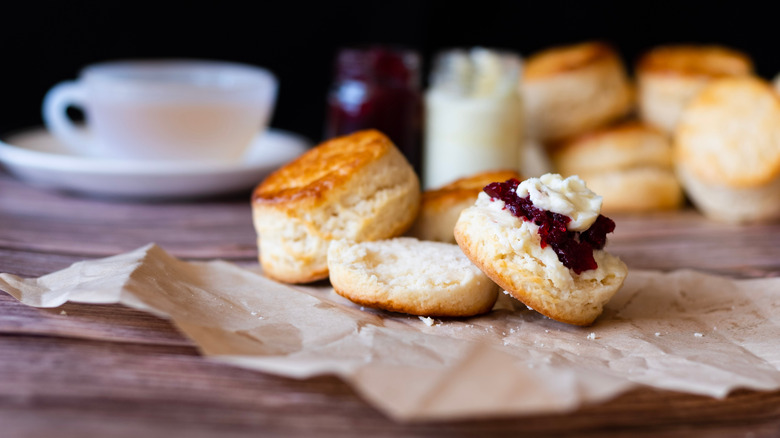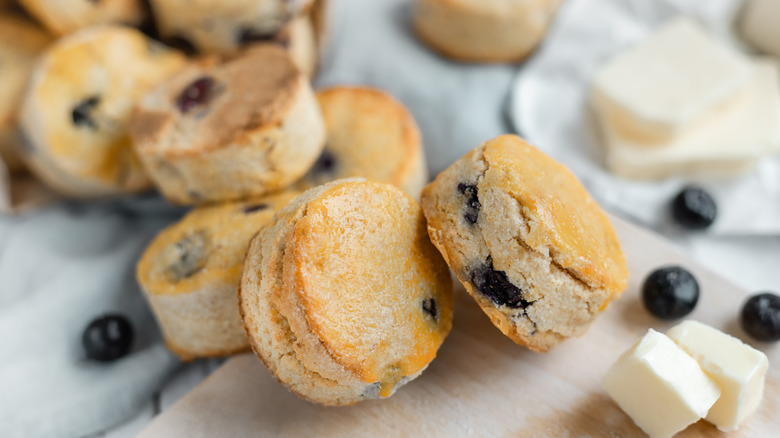You Should Never Do This When Baking Scones
Whether you're looking for a breakfast treat or something special to pair with a cup of tea or coffee, scones are the perfect solution. If baked properly, they're buttery and offer the ideal base for a wide range of flavors, allowing you to add your favorite spices or whatever fruit is in season. However, while scone recipes are typically versatile and can be jazzed up with a variety of mix-ins, there's one thing you should never do — overmix the dough (via Kitchn).
While overmixing isn't ideal for most baked goods, scones will end up with a chewy, tough texture if the dough is handled too much. You want the ingredients to come together enough that you can shape the dough as you want it, but a few lumps in the batter are completely fine. Why? Well, it's all about the gluten. If you overmix the dough once the wet ingredients have been added, the mixing process helps to activate the gluten and ruins the texture of your scones (via Food Crumbles).
This means resisting the urge to blitz your ingredients in a food processor in order to incorporate the cold butter used in your recipe as you'll run the risk of overmixing, according to The Spruce Eats. Instead, simply use a pastry cutter to incorporate your butter. Don't have one? Not to worry, a fork, knife, cheese grater, or even just your hands are all alternatives that will help you get the perfect dough (via Kitchen Feeds).
A few more tips for making the perfect batch of scones
Overmixing is probably the most major mistake that can happen when making scones because, well, there's just no recovering from a dough that has been mixed to the point where the texture has changed. However, there are a few other mistakes that a novice baker should know if they want to create scones that look like they came right out of the pages of a food magazine.
If you want the flaky scones of your dreams, you need to make sure that all your ingredients are cold when you start the recipe (via Kitchn). We're talking cold butter, cold cream, cold eggs, etc. That's because having your ingredients properly chilled will prevent the butter that you've carefully incorporated into your dough from melting before your scones hit the oven. And, to combat any issues with a warm kitchen or your hands heating up the dough, it can also help to chill the sliced or cut-out scones briefly before baking. In addition to helping with the flaky texture, chilled dough will rise a bit more easily, yielding those morsels of airy perfection (via The Spruce Eats).

